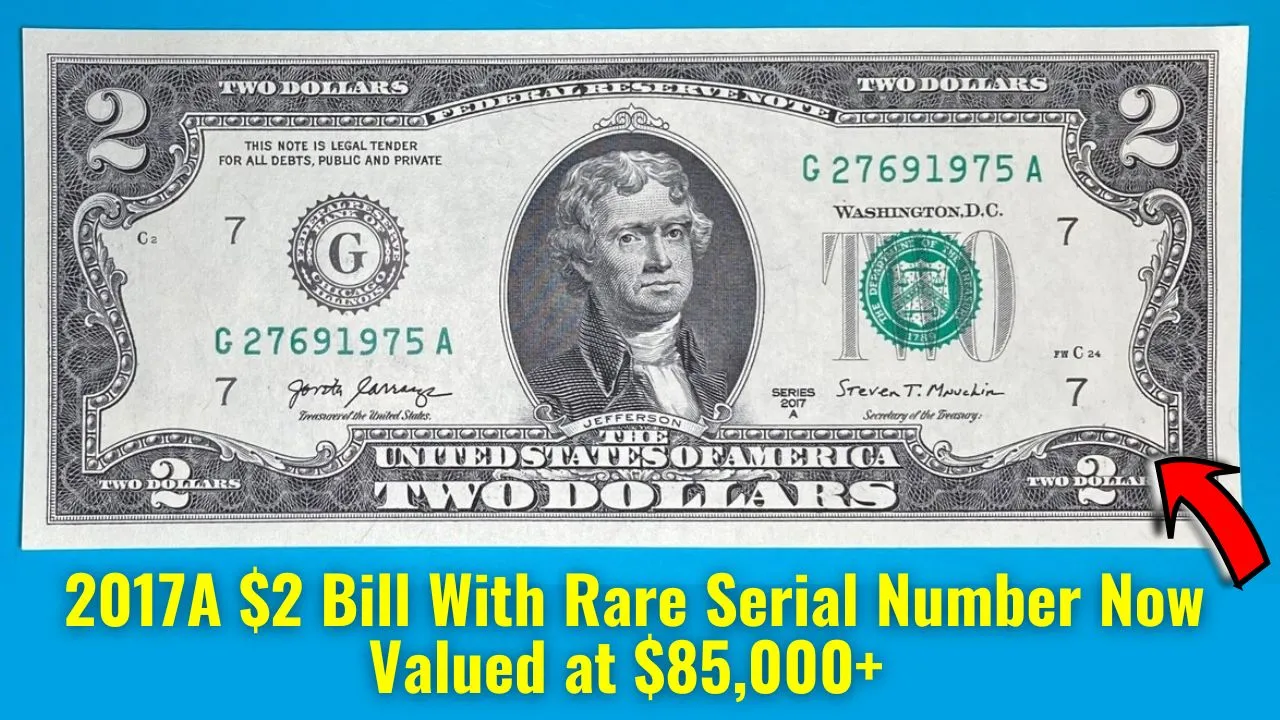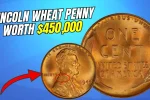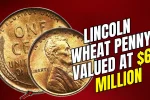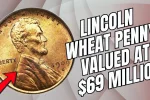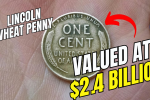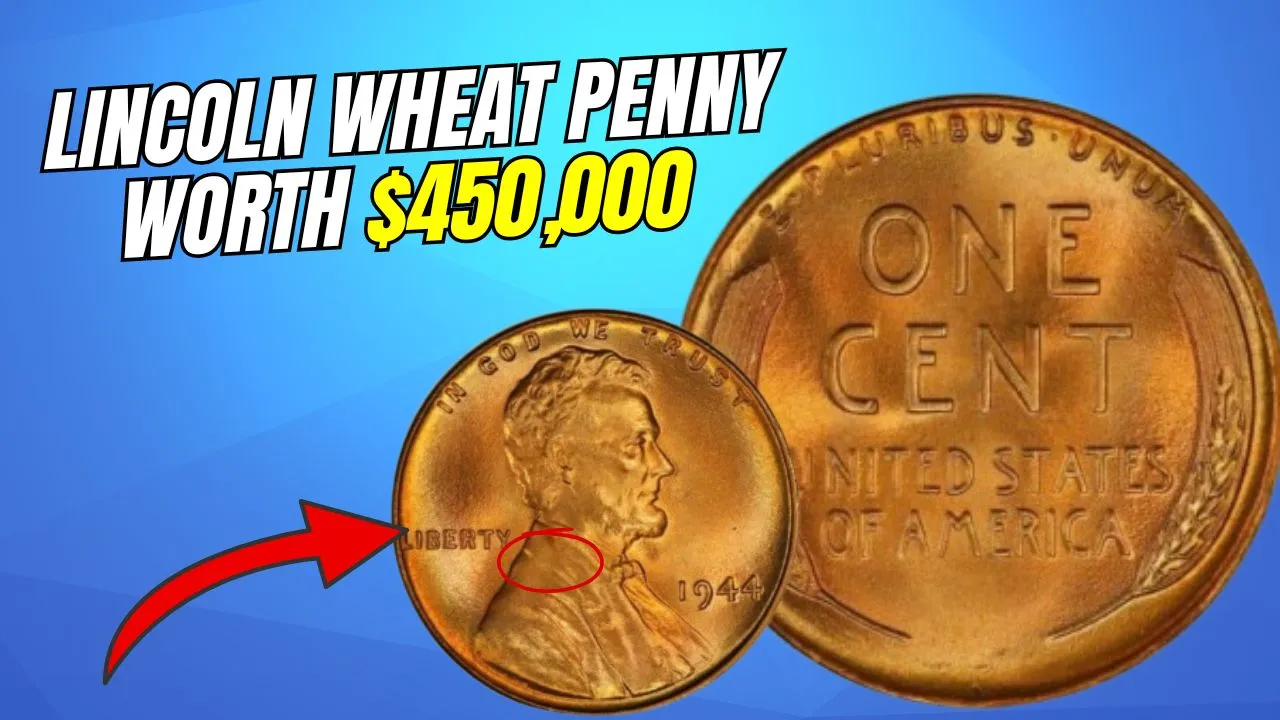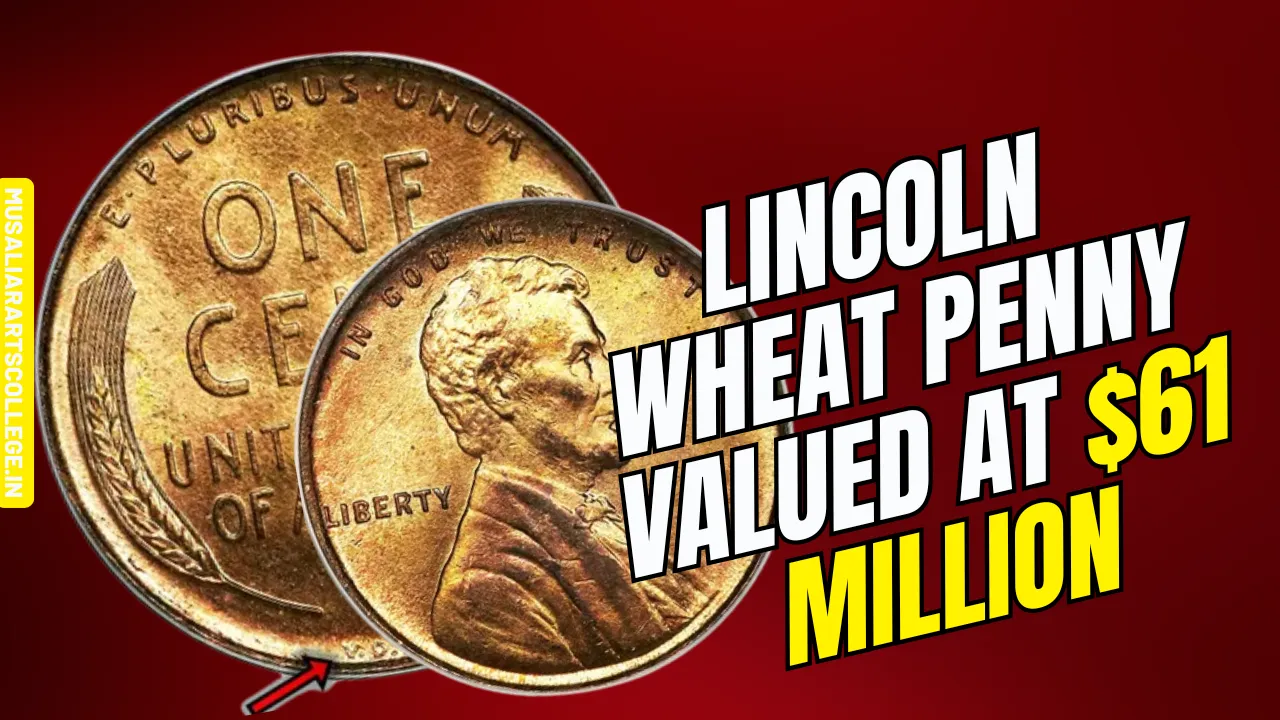2017A $2 Bill Rare Serial: In a world dominated by digital payments, paper money often goes unnoticed. But sometimes, something extraordinary surfaces in the most ordinary places—like a $2 bill. What was once pocket change for coffee could now be the key to a five-figure payday. That’s exactly what happened with a recently discovered 2017A $2 bill, found in circulation and later valued at over $85,000 because of one exceptional feature: its serial number.
This isn’t just a story for collectors; it’s a wake-up call for anyone who handles cash. The right combination of numbers on your bill could turn a common note into a rare collector’s prize. And the best part? It might already be in your wallet.
2017A $2 Bill Rare Serial
The buzz surrounding the 2017A $2 bill rare serial is more than hype. It’s a real-world example of how overlooked paper currency can carry tremendous value. Collectors place high worth on specific types of serial numbers—like low-digit runs (00000001 to 00000100), solid digits (e.g., 22222222), repeating patterns, and star notes. Combine one of these traits with a note from the less commonly seen $2 denomination and you have the perfect storm of rarity and desirability. The 2017A series is particularly interesting because it’s still in circulation, making it possible for everyday people to stumble upon valuable bills without even realizing it.
| Detail | Information |
| Bill Series | 2017A |
| Current Status | Still in active circulation |
| Notable Value | Over $85,000 for rare serial numbers |
| Key Serial Traits | Low digits, solids, ladders, repeaters, and star notes |
| Discovery Location | Found in routine circulation (e.g., gas station, change jar) |
| Rarity Factor | High due to uncommon serial and low visibility of $2 bills |
| Condition Influence | Uncirculated or crisp condition increases value significantly |
| Collector Demand | Very strong; growing interest among younger collectors |
The Unexpected Value Behind a Common Bill
The $2 bill holds an odd place in American currency. It’s officially printed by the Bureau of Engraving and Printing and is fully legal tender, yet many Americans rarely encounter one. This low usage makes any unique version even more appealing to currency collectors. And when paired with a highly collectible serial number, the value can soar beyond expectations.
What sets this specific $2 bill apart is a serial number so unique that it immediately caught the attention of the collector community. Serial numbers are often overlooked, but to a trained eye, patterns like “00000088” or “12344321” are treasure-worthy. When these numbers appear on a rarely circulated denomination like the $2 bill, the note becomes a serious collector’s item.
What Makes This $2 Bill Worth Over $85,000?
Several features contribute to the bill’s astonishing valuation:
- Low Serial Numbers: These start from “00000001” and typically go up to “00000100.” Such numbers indicate that the bill was one of the first printed in its series.
- Solid Numbers: Serial numbers like “88888888” are incredibly rare and aesthetically pleasing to collectors.
- Repeating or Ladder Numbers: Patterns like “12344321” or “12121212” are in high demand.
- Star Notes: These replace the last letter in the serial number with a star, signifying a reprint due to a defect. They’re printed in smaller quantities.
- Printing Errors: From mismatched digits to ink smears or misalignments, errors can boost value tremendously.
The $85,000+ note likely includes one or more of these traits and was verified through a reputable grading service, confirming its authenticity and pristine condition.
Found in Pocket Change?
What’s truly remarkable is that this valuable note wasn’t discovered in a private collection or at an auction. It was reportedly found in day-to-day circulation. Someone received it as change—perhaps from a gas station, a grocery store, or even a vending machine.
This proves that these high-value bills aren’t locked away in museums or safes. They’re still out there, tucked into wallets or forgotten inside drawers. That’s why now is the perfect time to check your cash. With a little awareness and a careful eye, you could uncover a hidden gem.
What You Should Look For in $2 Bills
To determine if you’re holding onto something valuable, examine your $2 bills for these key features:
- Serial Number: Look for low digits, repetition, solid runs, or star symbols.
- Condition: Crisp, uncirculated notes are always worth more.
- Series Year: While the 2017A series is currently in the spotlight, previous series like 2013 can also hold value.
- Misprints or Errors: If anything looks off—color, alignment, print quality—it could signal a valuable defect.
- Matched Pairs: Two bills with the same serial number (an error) are ultra-rare.
Keeping these characteristics in mind can help you identify potentially valuable notes before they’re accidentally spent.
Why the $2 Bill Is Getting More Attention
The $2 bill is enjoying a quiet resurgence in popularity, especially among younger collectors. Unlike more familiar denominations, the $2 note carries a bit of nostalgia and mystery. Its design, featuring Thomas Jefferson and the signing of the Declaration of Independence, stands out visually and historically.
With social media now playing a role in numismatics, viral stories of high-value finds are bringing new attention to what was once a forgotten denomination. That’s increasing both demand and awareness, particularly for bills from recent print runs like 2017A.
The Bureau of Engraving and Printing has confirmed that $2 bills are still being produced—but only in limited numbers. That low print volume, combined with viral buzz, means that interest (and values) could rise even higher in the coming years.
Should You Start Saving Your $2 Bills?
The answer is yes—especially if you come across one that meets any of the collectible criteria. Here’s what to do:
- Set it aside: Don’t spend it right away. Store it safely in a currency sleeve or archival folder.
- Document the serial number: Keep a photo and note of its condition.
- Check reputable sources: Use online guides or contact a numismatics expert to evaluate its worth.
- Look for more: Once you know what to look for, scanning through cash registers, change jars, or even ATM withdrawals becomes a fun and potentially profitable habit.
It’s unlikely every $2 bill will be worth thousands, but some are—and finding one could be your entry into a rewarding hobby or an unexpected payday.
FAQs
1. Is every 2017A $2 bill valuable?
No. Only those with rare serial numbers, errors, or exceptional condition are highly valuable. Most are still worth their face value unless they meet specific criteria.
2. What is a star note and why is it special?
A star note replaces a letter in the serial number with a star symbol. These are reprints and are printed in lower numbers, making them more desirable to collectors.
3. Can I spend a $2 bill at a store?
Yes, all $2 bills are legal tender. However, if your bill has collectible traits, it’s better to keep it than to spend it.
4. How do I know if my serial number is rare?
Look for patterns, repetition, low digits, or stars. There are online databases and collector communities that can help identify rare serial numbers.
5. Where can I get my bill appraised?
Professional numismatists, currency dealers, or grading services like PMG (Paper Money Guaranty) can evaluate and authenticate your bill.
Final Thought
The story of the 2017A $2 bill rare serial is a reminder that value can be hidden in plain sight. Whether tucked in a wallet, sitting in a till, or resting in a change jar, a seemingly ordinary bill might hold life-changing worth. With the growing interest in currency collecting, particularly among younger generations, now is the perfect time to start paying attention.
Next time you’re handed a $2 bill, pause and take a closer look. You could be holding more than a piece of currency—you might be holding a small fortune. Share this article with friends, check your own bills, and join the growing community of collectors who know the true value of a great find.
